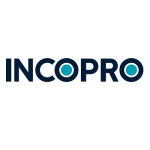Having over 25 years of experience as a litigator, Simon Baggs takes on dual roles as a partner at Wiggin and as the CEO and co-founder of online brand and IP protection company Incopro. The group, which recently presented the Europe In-House Team of the Year award at Managing IP’s EMEA Awards 2021, looks to create a world where consumers can trust every online interaction with a brand.
The idea for Incopro emerged over a coffee in London between Baggs and Bret Boivin, who now serves as the group’s chief technical officer. They realised the ‘bad guys’ were winning the battle online and were passionate about making the internet a better place for businesses and their consumers.
“Rights owners need proactive enforcement, better technology for tracking purposes and for platforms to be put on notice much faster,” Baggs tells Managing IP. “We have enabled rights owners to redress the imbalance.”
The growth of the internet

Baggs read history and politics for his bachelor’s degree at Leicester University and then completed a conversion course to pursue a career as a lawyer. He trained at Regent Street-based Hamlin Slowe, and spent two years at Schilling & Lom and Partners in the late 1990s, before joining Wiggin’s litigation team as a partner in 2000.
“I started off with an interest in entertainment law, representing music artists and companies. Some of the early cases that I worked on involved the likes of the Spice Girls and Stock Aitken Waterman,” says Baggs.
“As the internet began to grow in the late 1990s, I started to get more enquiries from the entertainment industry about protecting IP online. Gradually, the market’s interest, as well as the cases that I worked on, began to take on a greater IP focus.”
In response to the rising demand, Baggs created a four-person IP team at Wiggin, which has since expanded to over 30 professionals. The firm has also recently hired a team in Brussels to assist clients in dealing with legal complications arising from Brexit.
Watershed moments
Next year, Incopro will celebrate a decade since its incorporation.
Baggs highlights two specific cases that he has worked on as the ‘watershed moments’ that have shaped Incopro’s purpose and mission. A newspaper cut-out about the first case adorns the wall of his office at home.
“The Newzbin case led to the creation of Incopro,” says Baggs. ”The judgment paved the way for piracy websites to be blocked by internet service providers, and we felt there was a need for technology to do more to support clients in tackling the growing global issue of online IP infringement.”
Work on Incopro’s content protection technology started thereafter, and by the end of 2012, the group launched and licensed its first product. In the early days, the group specialised in assisting film and music companies developing evidence for site blockings with the help of a comprehensive database.
The second breakthrough – the Cartier case – saw Incopro give evidence to establish that internet service providers could block websites infringing trademarks. Subsequently, a leading luxury group partnered with Incopro to build technology to prioritise which web locations to tackle.
“This second case helped us enter the world of brand protection and build technology to tackle brand infringement,” says Baggs.
Soon after, Incopro launched Talisman, its brand protection platform, which aims to find, prioritise and eliminate brand infringement online.
New wave of threats
Baggs notes that potential threats are multiplying and charading through new forms to reflect the technology of today, meaning that the importance of brand protection for companies continues to soar. This involves innovative alternatives to classic counterfeit scenarios, as well as next-gen threats such as social media impersonation and deepfakes.
“A lot more is happening on social media. Feeds are becoming increasingly difficult to interpret. How do you know if what you are looking at is the real thing?” Baggs asks.
He compares the evolving phenomenon to an early memory of IP infringement that he spotted on his travels in Thailand during the late 1980s.
“When looking at cheap watches on side streets, sellers would claim that the counterfeit goods would cost just $20, rather than the expected market value of $10,000,” says Baggs.
“This still happens – but these days it is more confusing. A Facebook advert may present something that is not far off the original price. The said fake $20 watch would instead be pitched at $4,000 – and would be promoted as ‘50% off’ or as ‘stock clearance’. There are many people out there who would struggle to find out what would be a legitimate use of the brand and what is not.”
“Consumers have a mind-set where they feel actions would be stopped if they were not lawful.”
Studying market trends
Baggs suggests that the number of places where harm occurs will amplify over time and that there would be significant dispersals to more direct platforms such as Instagram and TikTok with the rise of ‘influencers’. Hence, there is a greater need for brands to ensure that consumers are getting the right experience.
Accordingly, Incopro’s strategy is technology-led.
“Incopro has a large engineering team and continually invests in research and development to keep up with market changes and trends. There is little use in just being efficient at solving problems which were at the forefront a few years ago,” says Baggs.
He recalls how counterfeiters attempted to evade being tracked by leaving out the names of brands from online descriptions, and by instead placing them on images to avoid detection from IP protection software. Technology has since been created to stamp out such illicit practices.
Transforming the industry
Baggs looks at Incopro’s growth over the past decade with pride. En route their journey, his team has routinely been recognised for innovation and technological excellence by trade publications including Managing IP, Modern Law and The Financial Times.
“I wanted to achieve a scaled solution,” says Baggs. “On the one hand, it was nice to see cases like Newzbin and Cartier being won. However, each of one of these cases was costing a lot of money and taking a lot of time – and the problem was considerably wider. It was simply not possible to litigate all the time.”
“We are proud to have secured some big successes,” he adds. “In some instances, we have gone from the stage of every other result of a brand on a Google search being fake, to having the first 20 pages produce genuine results.”
“Keeping the internet clean is where we have been so successful. It needs to be somewhere that products can be sold without distractions from fakes and frauds.”
Baggs is pleased with how clients’ expectations have evolved with time, to focus on outcomes rather than individual tasks.
“Customers increasingly want to see a reduction in problems, not just records of the number of removals.”
He reveals that as threats have become more complex, some of the main platforms have also reacted with better protection initiatives and have shown a willingness to work with groups like Incopro. Moreover, the arrival of legislative and regulatory reform through the SHOP SAFE Act in the US and the Digital Services Act in the EU are likely to improve enforcement.
“The internet infrastructure is quite heavily tilted in favour of the platforms – be it internet service providers, internet marketplaces or Google. Historically, rights owners have struggled to protect themselves online,” says Baggs. “There are a lot of platforms out there who still have to catch-up when it comes to supporting brands – but I do think we are seeing a shift.”
“It is also important to remember that the reach of certain platforms vary across the globe. For example in Russia, VKontakte is the equivalent of Facebook for the market. Likewise, MercadoLibre is a very important platform in South America.”
Responding to the pandemic
Incopro has grown during the COVID-19 pandemic. The group have protected more customers and employed more staff, despite the day-to-day challenges of remote working.
“There has been a huge acceleration in the use of online platforms to buy goods and services,” explains Baggs.
“The level of interaction was headed this way – but we have perhaps seen five years’ worth of change in less than a year.”
Some of the work completed by Incopro has assisted health authorities in the fight against the pandemic. The group has supported companies that make consumer products such as masks and medication deal with matters including counterfeits and price gouging, which began to appear as early as March 2020.
“Protecting the brands and protecting consumers is something we are really proud of,” says Baggs.
Having started out as a team of four, situated in a small room within Wiggin’s London offices, there are now branches in Cardiff, Idaho and Shanghai.
“We have a vibrant, multicultural workforce at Incopro,” says Baggs. “It is encouraging to track our strong performance on promoting equal opportunities and cultural diversity.”
“When dealing with the internet, it helps if you are able to employ individuals who originate from different countries and speak different languages. You want to employ people who can understand a wide spectrum of the internet and how brands use it.”
The approach from Baggs and Incopro towards brand protection seems to have struck the right balance, as companies seek to navigate the transforming industry.











